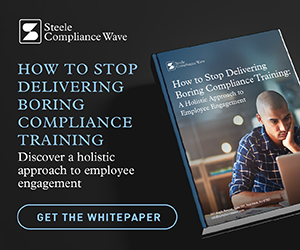Compliance Communications Blog
Dec 23, 2014 • Joel A. Rogers
Purists of a certain sort will argue (as purists are wont to do) that the ne plus ultra of adaptations of Charles Dickens’ A Christmas Carol is the 1951 film version starring Alastair Sim as Ebenezer Scrooge. I beg to differ, as my kids and I have been watching the Mr. Magoo version again lately, and I find that the sound of Jim Backus’ voice is deeply tied up in my psyche with the aesthetic of the holiday season. Plus there are some really wonderful songs in that cartoon! (“Ringle, ringle, coins when they mingle make such a lovely sound…”)
But no matter! Whatever version compels you, compliance and ethics professionals should take careful note of this tale. Why? Because corporate compliance and ethics is fundamentally about changing behavior. (Of course it is also very much about tracking, testing systems that track, and investigating behavior, but in the first instance it is about exerting an influence on employees’ behavior.) And this is one story, albeit a fictional one, which illustrates just how powerful
VIEW THE FULL POST
Nov 19, 2014 • Joel A. Rogers
The importance of simplicity has long been lauded in matters both physical and metaphysical. Einstein is credited as having said, “Everything should be as simple as it can be” (of course he adds – in a nod to completeness – “but not simpler.”) William of Ockham, 14th century English Franciscan friar and scholastic philosopher, is best known for his problem-solving principle that says that among competing theories, the one containing the fewest assumptions (absent other evidence for complexity) is the best one. This cutting away of every “superfluous ontological apparatus” is famously known as “Ockham’s Razor.”
VIEW THE FULL POST
Oct 29, 2014 • Joel A. Rogers
In a recent entry on his always excellent blog, SCCE CEO Roy Snell talks about a study in which the use of the word “because” is shown to be powerfully effective in influencing others. (“We need to leave now” is presumably less effective than “We need to leave now because we are about to be late.”) Roy makes a point about the quality and integrity of the “because.” “We need to formulate our “because”… thoughtfully before we ask people to do things,” he says. “People can see through and are not motivated by the ‘manufactured because.’”
VIEW THE FULL POST
Oct 08, 2014 • Joel A. Rogers
Every time there is a paradigm shift in any arena, a new vocabulary – either new words or new meanings to older words – emerges to account for a host of novel concepts. By way of a range of examples, consider:
VIEW THE FULL POST
Sep 30, 2014 • Joel A. Rogers
Reflect, for one moment, on just how much you know about McDonald’s. (It doesn’t matter whether you love McDonald’s or would never be caught dead in one; this works either way.) You know the names of many of their foods. You know that an Egg McMuffin is eggs on an English muffin with cheese and Canadian bacon, and if you made a sandwich at home that looked like that you might have to resist the urge to call it an Egg McMuffin. You probably even know that the Shamrock Shake only comes around at certain times of the year, and you will remember the Hamburglar and Ronald McDonald for the rest of your life.
AND YET: You have never read a single policy related to Big Macs. You have never received annual training on eating Chicken McNuggets. You have never signed a Certification that says that you know who Grimace is and that you agree that he is a big, affable purple guy.
VIEW THE FULL POST


